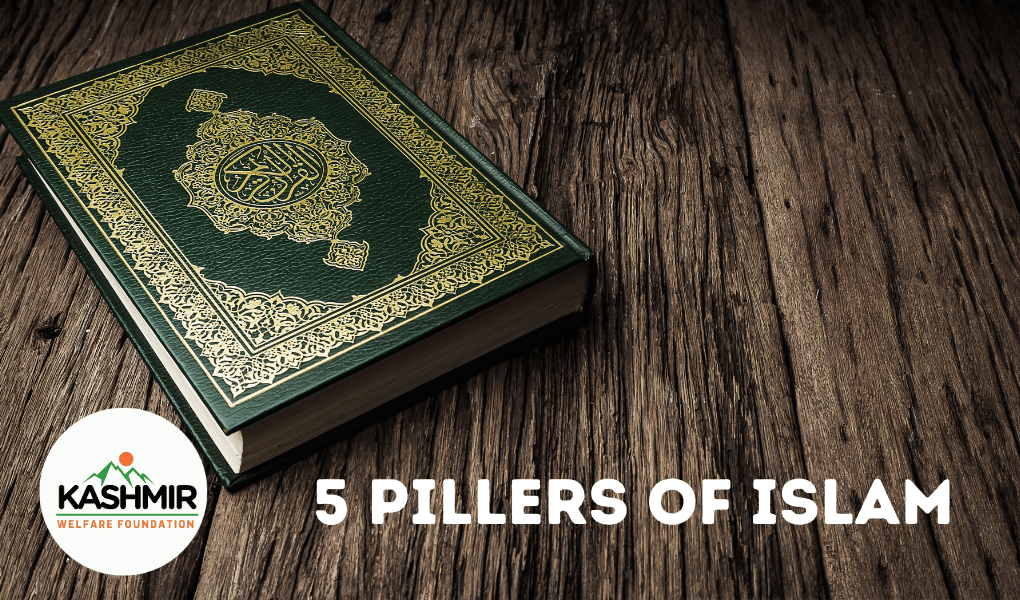The 5 Pillars of Islam and Their Profound Importance on Muslims

Islam, a major world religion, is built upon five fundamental practices known as the Five Pillars of Islam. These pillars form the foundation of a Muslim’s faith and serve as a guide for leading a righteous and fulfilling life. In this article, we will explore each of the Five Pillars and delve into their significance in the lives of Muslims worldwide.
The First Pillar: Shahada – The Declaration of Faith
The first pillar, Shahada, is the declaration of faith. It involves bearing witness and proclaiming that there is no deity worthy of worship except Allah, and that Muhammad is His messenger. This simple yet profound statement encapsulates the core beliefs of Islam and serves as a constant reminder of one’s commitment to the religion. By reciting the Shahada, Muslims affirm their faith in the oneness of Allah and the finality of Prophet Muhammad’s message.
The Shahada is not only an affirmation of belief but also a unifying force for the global Muslim community. It serves as a reminder that regardless of cultural or ethnic backgrounds, all Muslims are united by their faith in Allah and the teachings of Prophet Muhammad.
The Second Pillar: Salah – The Ritual Prayer
The second pillar, Salah, refers to the prayer performed five times a day. It is a direct means of communication between a believer and Allah. Through Salah, Muslims express their gratitude, seek guidance, and seek forgiveness. This regular practice fosters a deep sense of spirituality and mindfulness, reminding Muslims of their duty to maintain a strong connection with their Creator.
Salah also promotes discipline, punctuality, and self-control. By adhering to the prescribed times and physical movements during prayer, Muslims learn to prioritise their spiritual obligations while balancing the demands of daily life.
The Third Pillar: Zakat – The Almsgiving
Zakat, the third pillar, emphasises the importance of charity and social responsibility. Muslims who are financially able are required to give a portion of their wealth to those in need. This act of giving not only helps alleviate poverty and inequality but also purifies the soul of the giver. It serves as a reminder that wealth is a blessing from Allah and should be shared with others.
You can calculate your Zakat here.
Zakat fosters a sense of empathy and compassion within the Muslim community. By fulfilling this obligation, Muslims contribute to the well-being of society, ensuring that the less fortunate have access to basic necessities and opportunities for a better life.
Pillar 4: Sawm – The Fasting
Sawm, the fourth pillar, refers to the obligatory fasting during the holy month of Ramadan. From dawn to sunset, Muslims abstain from food, drink, and other physical needs. This act of self-restraint serves as a means of purifying the body and soul, fostering empathy for those less fortunate, and developing self-discipline.
During Ramadan, Muslims experience a heightened spiritual connection as they engage in increased prayer, recitation of the Quran, and acts of kindness. Fasting not only strengthens one’s relationship with Allah but also promotes self-reflection and gratitude for the blessings in life.
Pillar 5: Hajj – The Pilgrimage to Mecca
The fifth pillar, Hajj, is the pilgrimage to the holy city of Mecca, which every able-bodied and financially capable Muslim is obliged to undertake at least once in their lifetime. The Hajj is a profound spiritual journey that retraces the steps of Prophet Muhammad and the prophets before him.
During Hajj, Muslims from all corners of the globe come together, dressed in simple white garments, equal in their devotion to Allah. The pilgrimage symbolises unity, equality, and humility before the Creator. It serves as a powerful reminder of the transitory nature of this life and the ultimate goal of attaining closeness to Allah.
The Five pillars are not mere rituals!
The Five Pillars of Islam are not merely rituals; they are the cornerstones of a Muslim’s faith and identity. Each pillar carries profound significance, shaping the spiritual, moral, and social aspects of a Muslim’s life. By adhering to these pillars, Muslims strive to attain a state of righteousness, inner peace, and a strong connection with Allah.
Understanding the importance of these pillars allows us to appreciate the depth and beauty of Islam as a comprehensive way of life. Whether it is the declaration of faith, the ritual prayer, almsgiving, fasting, or the pilgrimage, each pillar contributes to the holistic development of an individual and the betterment of society as a whole.
- How to Use Oil-Based Perfumes: Tips for Storing, Applying, and Getting the Best Results
- Your Ultimate Guide to Wedding Vendors from Muslim Wedding Expo 2025
- Thank You for Making the Muslim Wedding Expo 2025 a Success!
- How to Win Big: Giveaways, Competitions, and Prizes at the Muslim Wedding Expo 2025
- Cultural Significance and Traditions of Muslim Weddings: What to Expect at the Expo











